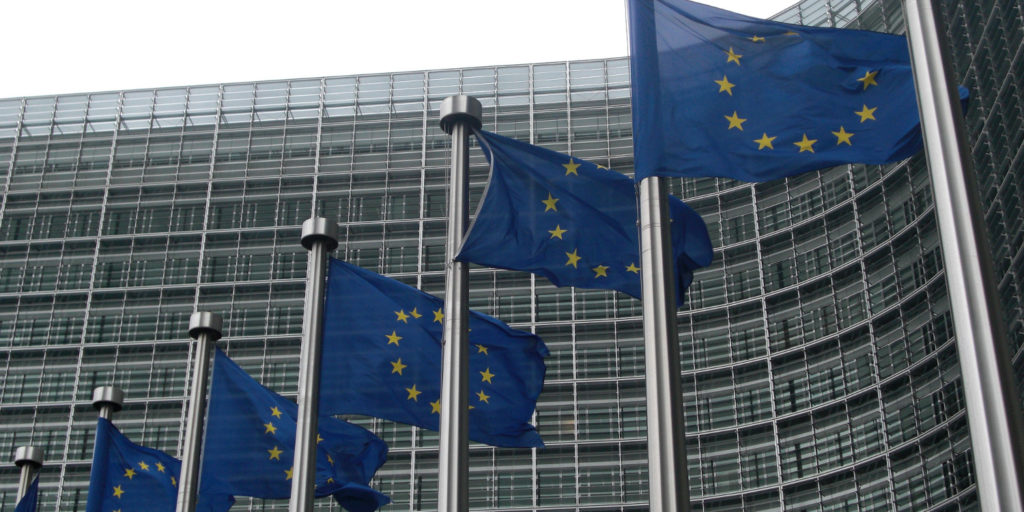The European Commission has approved another near-€12 billion element of its European Battery Alliance strategy by designating the 12-nation European Battery Innovation project an ‘important project of common European interest' (IPCEI).
Approval clears the way for the dozen EU member states to support companies in a push for innovation at all stages of the battery supply chain, under the bloc's state aid rules.
The €2.9 billion project – the second battery-related IPCEI approved by the commission – will run until 2028 and is expected to leverage a further €9 billion of private sector investment.
It is anticipated the Europe-wide project will unearth new battery chemistries and production methods as innovation is funded at every stage of the battery supply chain, from extracting raw materials through design and manufacturing to recycling and disposal under a circular economy approach.
Circular manufacturing
Circular manufacturing was the focus of the pv magazine UP initiative’s Q3 theme. We considered whether adopting circular approaches could create a competitive edge and reap financial and reputational rewards in addition to investigating what is already being done in the solar industry. Browse our coverage here.
The seven EU member states involved in the initial EU battery IPCEI project – Belgium, Germany, France, Italy, Poland, Finland and Sweden – which was approved in December 2019, are all involved in the latest initiative, alongside Austria, Croatia, Greece, Slovakia and Spain.
Popular content
The project will see 46 direct participants backed by their member states with up to €2.9 billion of public money as they conduct 300 industrial and scientific partnerships with more than 150 external partners, including European universities, research institutes and small and medium-seized enterprizes, the European Commission announced yesterday.
Italy will support 12 of the direct project participants and Germany 11, with Austria backing six; Slovakia four; Finland three; France, Spain and Belgium two each and one representative from each of Greece and Croatia. Poland will back the research efforts of SGL Carbon jointly with Germany, which will also support Northvolt with the Swedish government.
The line-up
Italy will be represented by Fluorsid, Green Energy Storage, Italmatch Chemicals, Solvay, FCA, Enel X, Midac, Endurance, FIAMM, FPT Industrial and Engitec with Manz jointly backed by the Italian and German governments. In addition to SGL Carbon, Manz and Northvolt, Germany will support ACIS, Alumina Systems, BMW, Tesla, Cellforce Group, Elringklinger, Skeleton Technologies and Liofit.
The Austrian participants in the project will be Borealis, Varta Micro Innovation, AVL, Miba emobility, Rosendahl Nextrom and Voltlabor. Slovakia will fund research by Inobat Auto and Inobat Energy, Energo Aqua and ZTS Vav. Keliber, Fortum and Valmet Automotive will represent Finland; Arkema and Tokai Carbon Group, France; Ferroglobe and Little Electric Cars, Spain; and Hydrometal and Prayon, Belgium. Greek entity Sunlight Systems and Croatian representative Rimac Automoboli complete the line-up of direct participants conducting research in the fields of raw and advanced materials, battery cells and systems, and recycling and sustainability, with several bodies working across two areas of innovation.
This content is protected by copyright and may not be reused. If you want to cooperate with us and would like to reuse some of our content, please contact: editors@pv-magazine.com.



2 comments
By submitting this form you agree to pv magazine using your data for the purposes of publishing your comment.
Your personal data will only be disclosed or otherwise transmitted to third parties for the purposes of spam filtering or if this is necessary for technical maintenance of the website. Any other transfer to third parties will not take place unless this is justified on the basis of applicable data protection regulations or if pv magazine is legally obliged to do so.
You may revoke this consent at any time with effect for the future, in which case your personal data will be deleted immediately. Otherwise, your data will be deleted if pv magazine has processed your request or the purpose of data storage is fulfilled.
Further information on data privacy can be found in our Data Protection Policy.